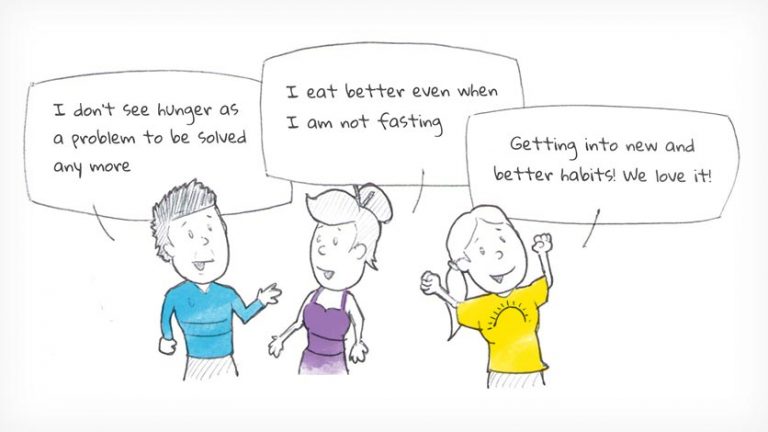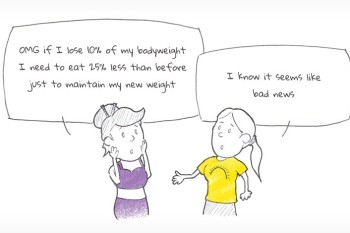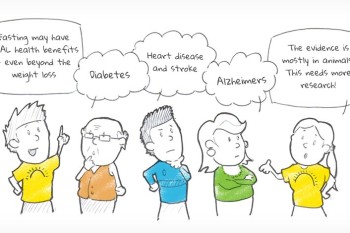Fasting has many psychological benefits as well as the physical ones. Learning to cope with hunger sensations is empowering, freeing you from worry about where the next meal will come from and breaking links between emotions and eating.
Our FastDay community members tell us that since starting fasting they have found:
-
On non-fast days they snack less between meals because when they feel hungry they don’t need to rush to eat
-
Junk foods lose some of their appeal
-
They are less likely to eat because of boredom
-
They are less likely to eat when feeling emotional and upset
-
They notice a general improvement in mood.
These changes don’t happen immediately though. In the early days of fasting, you may find that you over-eat on non-fast days or when emotional or bored. It takes some time for the old patterns of eating to be erased by fasting.
Why is our mental state so entwined with eating, or why do we turn to food when feeling down?
This is a very complicated area because humans are complicated creatures and, of course, the reasons for turning to food likely vary from person to person. Simplistically, eating makes us feel good, food is used to comfort us as babies and so it is natural that we have a tendency to turn to food. Then, as we grow, more stresses and influences affect our eating behaviours. Our parents may have used sweet foods as a reward for good behaviour, and denied us treats if we behaved badly, thus strengthening the natural links between food and reward. Every time we turn to food to help us cope with feeling sad, stressed or vulnerable, we strengthen those links. When we are fasting, we are forced to cope with these kinds of feelings without eating. The eating must be delayed until later. This weakens those links.
A good website for people who struggle with emotional eating, bingeing, eating when not hungry and for whom food and weight becomes an unhealthy preoccupation is the Diet Survivors.
Is intermittent fasting able to cure eating disorders?
If your relationship with food has become highly distorted so that you have developed an eating disorder, or if you have deep seated psychological problems that affect the way you eat, intermittent fasting may not be enough or may even be detrimental to your mental health. At FastDay, we strongly advise that you seek advice from your doctor or mental health specialist if you have, or think you may have, an eating disorder.
Is there any scientific evidence that fasting affects our mood and relationships with food?
Most scientific studies have looked at the effects of fasting on brain function rather than psychological effects. These studies have found that fasting can improve brain function and may have a role in protecting against Alzheimer’s disease and controlling epilepsy.1 Scientists have also examined how fasting might affect the way in which appetite is controlled in the brain.1
One study has looked at how fasting can affect depression.2 Obese patients fasted for 7 days and reported improved mood and vigour, and decreased anxiety, depression and fatigue.














